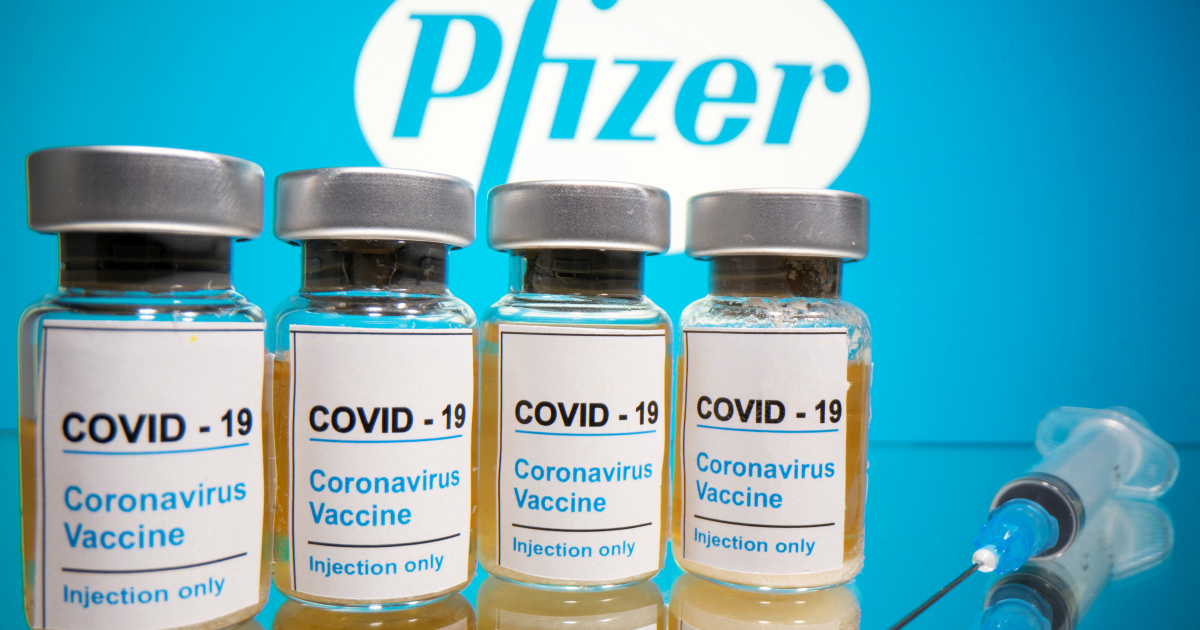Pfizer and BioNTech have explained the delay in their completion of the request for the Food and Drug Administration (FDA) to authorise their Coronavirus vaccine for children under five years old.
They said the delay was because there was not enough data on the efficacy of a third dose.
An FDA advisory panel meeting scheduled for next week has been postponed, the FDA said.
“Based on the agency’s preliminary assessment, and to allow more time to evaluate additional data, we believe additional information regarding the ongoing evaluation of a third dose should be considered.
“(This delay is) part of our decision-making for potential authorisation,” the agency said in a statement.
The decision to extend the data submission and delay the advisory panel meeting pushes back the timeline for authorising COVID-19 shots for kids under five, a major blow to parents of young kids.
The companies said they don’t expect to have three-dose protection data available until early April.
“Cases continue to accumulate according to the study protocol and more data are being generated because rates of infection and illness remain high in children of this age, especially due to the recent Omicron surge,” Pfizer said in a statement.
Pfizer earlier this month began applying for emergency use authorisation of its vaccine in kids aged six months to four years old.
Although the company said three doses will eventually be needed, the application was only for two doses.
At the time, Pfizer said it was applying before all the data were available at the request of the FDA, so the process of authorising two doses could begin.
The idea was that the authorisation could then later be expanded to three doses once the data becomes available.
According to FDA, the goal was to understand if two doses would provide sufficient protection, and then authorise the eventual third dose later.
The delay likely indicates the agency did not have data that showed two doses was enough.
When asked directly during a news conference if new data showed two doses did not provide sufficient protection, Peter Marks, head of the FDA division responsible for vaccine safety, did not directly answer.
“The data that we saw made us realise that we needed to see data from a third dose in the ongoing trial in order to make the determination that we could proceed with doing an authorisation,” Marks said.
The companies and FDA said data was coming in rapidly because so many children have been infected with omicron
“Given that the study is advancing at a rapid pace, the companies will wait for the three-dose data as Pfizer and BioNTech continue to believe it may provide a higher level of protection in this age group.
“This is also supported by recent observations of three dose booster,” Pfizer said.
Pfizer and BioNTech said in December that the vaccine application for children under five years could take as long as the middle of 2022, given that the immune response from two doses was not sufficient in children between the ages of two and four years, and a third dose needed to be tested.
The doses in question for children under five are much smaller than the doses used for adults.
According to the companies, data showed two doses may have been sufficient for children under the age of two.
Meanwhile, federal officials had already been planning how to distribute the vaccines.
The Centers for Disease Control and Prevention this week told state and local health officials they could receive their first shipments by Feb. 21.
The FDA has been under enormous pressure to authorise a COVID-19 vaccine for the youngest children.
Marks said the decision to delay should reassure them because it meant FDA “is doing due diligence”.
“I think parents can feel reassured that we have set a standard by which we feel that if something does not meet that standard, we can’t proceed forward,” Marks said.
Marks said he strongly urged parents to continue relying on whatever mitigation measures they had been using to keep their children safe.
“For the next few months, while these additional data are gathered, parents will have to rely on what they’ve come to do well.
“They are using masking procedures, and they are making sure that they are vaccinated.
“We will do our part, obviously, to move as fast as we can when we have the data.
“But for now, we will have to ask parents to help to continue to do what they’ve been doing,” Marks said. (NAN)

